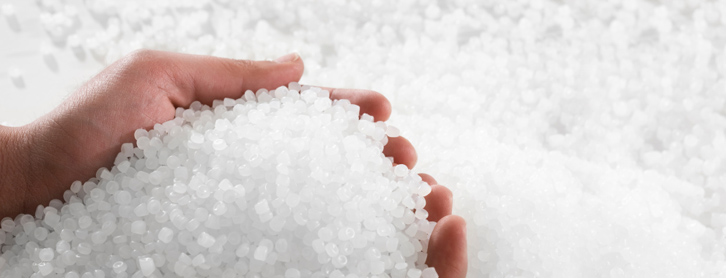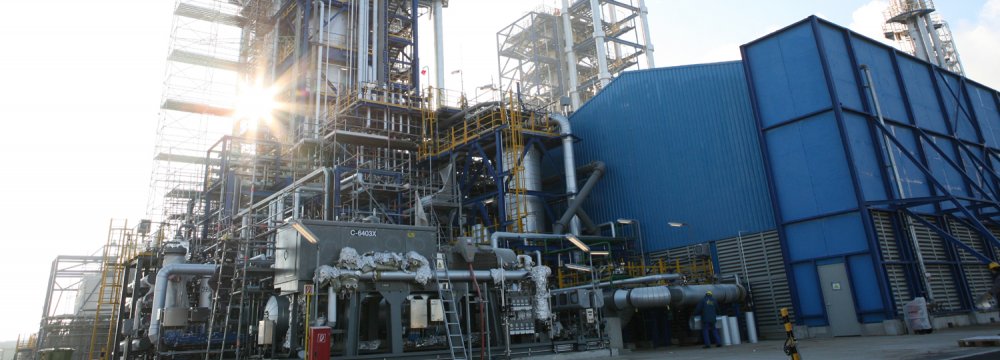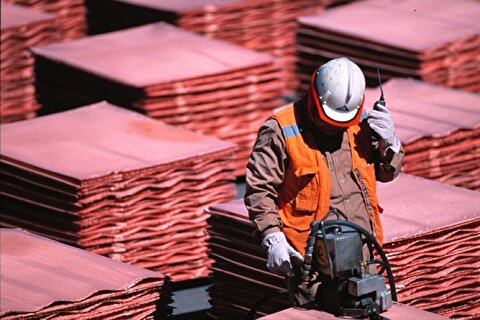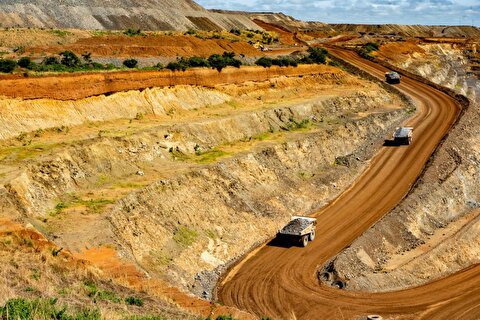
S. Korea’s Hyosung Eying Iran Polypropylene Deal


Hyosung Corp., South Korea’s leading chemical company, is accelerating its foray into Iran, a country rich in natural gas and oil reserves and dubbed as the gateway to other markets in the Middle East, Europe and Africa.
According to chemical industry sources, Hyosung recently signed a memorandum of understanding with Iran’s National Petrochemical Company on production of polypropylene (PP), thermoplastic polymer used in making plastic products and home appliances, South Korea's Pulse news agency reported.
The Korean company said it has been in talks with its Iranian counterpart to determine the feasibility of its PP business, but has not come to any conclusion yet.
Industry observers expect Hyosung to expand its offshore manufacturing network and set up a PP production plant in Iran. The company inked an agreement with the Vietnam government in February 2016 to build a PP plant at a cost of $336 million.
Established in 1966, the Seoul-based company operates in various fields, including the chemical industry, industrial machinery, trade and construction. It is chiefly known in South Korea for high-end apartments and automatic teller machines.
Iran has been attracting investments from abroad on expectations of economic renaissance following the lifting of international sanctions.
The country has the world’s second largest natural gas deposit and the fourth largest crude oil reserve on top of its geographical advantage, offering easy access to Middle East markets as well as Europe and Africa.
Cho Hyun-sang, Hyosung president, who visited Iran last May as a member of a business delegation alongside former South Korean president Park Geun-hye, has since been building business networks with the Iranian government.
The initiative is part of Iran's efforts to become a major petrochemical player in the Middle East and boost its production capacity to 130 million tons annually in four years.
Tehran says it aims to close in on its Persian Gulf rival and the region's top petrochemical producer Saudi Arabia which has announced major expansion plans in its petrochemical infrastructure. The oil kingdom's annual petrochemical output capacity reached 99 million tons in 2016.
South Korean companies have made notable inroads in rekindling trade ties with Iran since western economic sanctions were lifted last year.
According to reports, a consortium of South Korean companies has held talks over investing in a petrochemical project in the city of Masjed Soleyman in the southern Khuzestan Province. Officials say the project can raise as much as $5 billion. Daelim Industrial Company, South Korea's construction conglomerate, said in a statement in December that it had received a letter of award from Isfahan Oil Refining Company, worth $2 billion, to improve and expand oil refining facilities in Isfahan Province.


Newmont nets $100M payment related Akyem mine sale

First Quantum scores $1B streaming deal with Royal Gold

Caterpillar sees US tariff hit of up to $1.5 billion this year

Gold price rebounds nearly 2% on US payrolls data

Copper price collapses by 20% as US excludes refined metal from tariffs

St Augustine PFS confirms ‘world-class’ potential of Kingking project with $4.2B value

Goldman told clients to go long copper a day before price plunge

B2Gold gets Mali nod to start underground mining at Fekola

Copper price posts second weekly drop after Trump’s tariff surprise

Codelco seeks restart at Chilean copper mine after collapse

US slaps tariffs on 1-kg, 100-oz gold bars: Financial Times

BHP, Vale offer $1.4 billion settlement in UK lawsuit over Brazil dam disaster, FT reports

NextSource soars on Mitsubishi Chemical offtake deal

Copper price slips as unwinding of tariff trade boosts LME stockpiles

SAIL Bhilai Steel relies on Danieli proprietary technology to expand plate mill portfolio to higher steel grades

Alba Discloses its Financial Results for the Second Quarter and H1 of 2025

Australia weighs price floor for critical minerals, boosting rare earth miners

Australia pledges $87M to rescue Trafigura’s Nyrstar smelters in critical minerals push

Fresnillo lifts gold forecast on strong first-half surge

US slaps tariffs on 1-kg, 100-oz gold bars: Financial Times

BHP, Vale offer $1.4 billion settlement in UK lawsuit over Brazil dam disaster, FT reports

NextSource soars on Mitsubishi Chemical offtake deal

Copper price slips as unwinding of tariff trade boosts LME stockpiles

SAIL Bhilai Steel relies on Danieli proprietary technology to expand plate mill portfolio to higher steel grades

Alba Discloses its Financial Results for the Second Quarter and H1 of 2025

Australia weighs price floor for critical minerals, boosting rare earth miners

Australia pledges $87M to rescue Trafigura’s Nyrstar smelters in critical minerals push

Fresnillo lifts gold forecast on strong first-half surge














